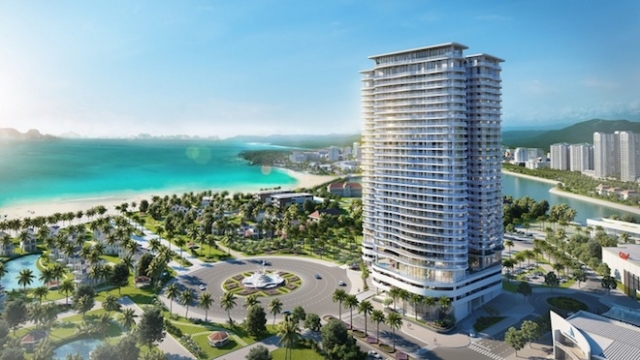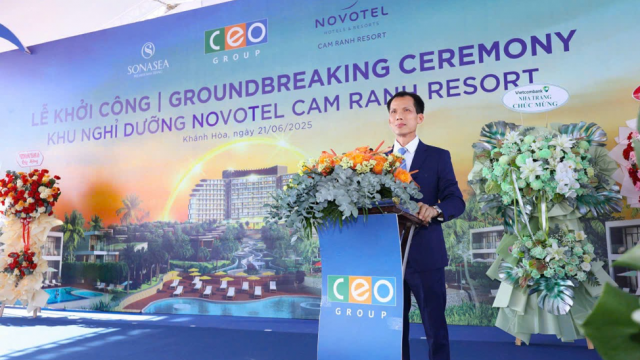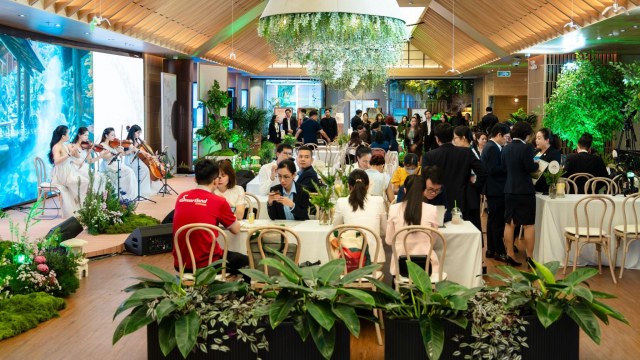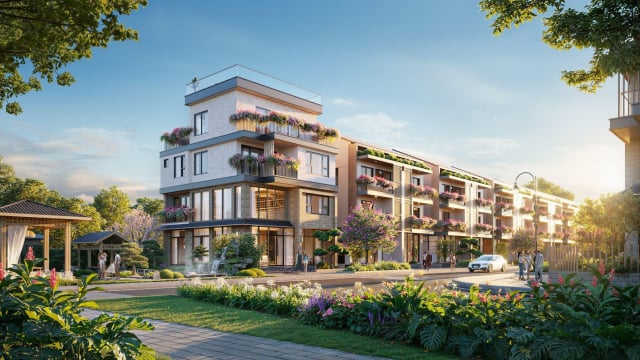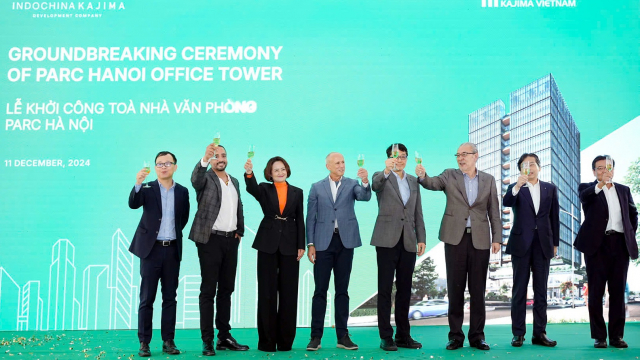Property
Thousands of smart homes to mushroom in Ho Chi Minh City
New residential projects would require global brand, international technology standards, quick and easy to install, good after-sale services and app customization, according to country president of Schneider Electric Vietnam, Myanmar, and Cambodia Yoon Young Kim.

Technology is impacting strongly on people’s lives in general and the real estate sector in particular. Smartphones have become more popular than ever. It has been used to entertain, make decisions and connect people. People are connecting with each other via different platforms including artificial intelligence, big data, and Internet of Things (IoT) instead of the internet simply.
Speaking at TheLEADER's conference on The new era of real estate growth: From volume to value, country president of Schneider Electric Vietnam, Myanmar, and Cambodia Yoon Young Kim said: "According to Fortune 500 companies 2018, the application of technology breakthrough has helped companies and each employee to innovate a lot, especially when the world in general and Vietnam, in particular, are in the digital age."
By 2025, there will be almost 10 times more connected things than the world population. Kim stated that the global trend in the residential market would be IoT and digitization.
Smart home market size and share will hit $53.45 billion by 2022. About 82 per cent of brokers and agents think smart home technology makes easier to sell houses.
According to Schneider Electric leader, in ten years ago, Vietnamese market mostly focused on luxury villas with such technologies as wired system, smart switch, touchscreen, handheld remote. Until now, luxury villas and apartments are the two main segments in the residential market using modern technologies such as Zigbee wireless, smart switch, tablet/smartphone, voice control.
In 2017 and 2018, 7,000 apartments have already been delivered. Kim forecasts that within the next two years, there would be thousands of smart homes provided in Ho Chi Minh City with such famous brands as Vinhomes, Son Kim Land and Novaland.
"Investors and developers need to know the key requirements of these smart homes. The platforms used in the buildings will be an open platform instead of closing ones as before," Kim said.
These requirements include global brand, international technology standards, quick and easy to install (timeline and installation cost), good after-sale services and app customization for individual projects.
Besides focusing on the development of each smart home, Schneider Electric leader also highlights the importance of building a smart community with the digitalization in buildings via smartphone applications for each project.
The information needing a smart management system includes community information, monthly electrical, water bill, resident feedback, facility booking, maintenance request, smart parking, smart fire alarm.
Kim also affirms the urbanization trend which would lead to a large number of larger and bigger cities. “In that context, investors and developers must ensure the energy and space efficiency, occupant comfort, renewable energies, certification, and regulation. Buildings are the bedrock of the city and they need to be more sustainable for a greener world”.
He said that by 2035, the world’s electricity consumption would increase by 60 per cent with 60 per cent of the amount of energy used in buildings. Therefore, Vietnam in particular and the whole world, in general, are facing the risk of lacking energy and they are on the race of finding new sources of electricity.
"Having a sustainable energy source is very important. It is the responsibility of every citizen, community, and government. For effective energy management, the adoption of technology will become necessary," said Schneider Electric leader.
Assessing the values provided by the smart building management system, Kim says that it could maximize the efficiency of buildings, creating more comfort and productivity for occupants and increasing the value of buildings.

Sharing Schneider Electric’s experiences in providing solutions for smart EcoStruxure building solution, Kim says that Schneider Electric has collaborated smart IoT platform serving over one million buildings globally.
The company ranked the first in Navigant’s 2016 leaderboard report for building energy management systems and No.1 in Green Quadrant for building energy management software in 2015.
A typical project is The Edge in Amsterdam, Netherlands applied EcoStruxure building solution with three layers including connected products, edge control, and apps, analytics, and services. The building could produce on its own 102 per cent energy.
From smart buildings to a smart city, Kim states that cities are complex and face many unique challenges in terms of sustainability, infrastructure quality, investment and funding, environmental quality, competitiveness/jobs, and digital public services. Also, innovation districts drive smart cities and provide a true living lab environment for further research and innovation.
“Therefore, there is no single answer to “being smart” and you need to provide best in class solutions across many different city domains,” said Kim.
When developing these applications in real estate projects, Kim said Schneider Electric has always worked with local partners such as FPT to support Vietnamese enterprises to approach IoT solutions when developing smart homes.
Branded residences to blossom in Vietnam's fast growing cities
Hai Phong industrial property powers up with new project from Indochina Kajima
The project Core5 Hai Phong from Indochina Kajima and Itochu Corporation will deliver approximately 80,000 square metres of world-class ready-built factory for lease, handover expected in the first quarter of 2027.
A decade of unprecedented apartment price surge
A decade of relentless apartment price growth has pushed the dream of homeownership further out of reach for Vietnam’s middle- and lower-income earners.
Essensia Parkway sells out within hours, marking an outstanding partnership with WorldHotels
Essensia Parkway makes significant impact in the high-end real estate market as 100 per cent of the limited collection was successfully registered within just a few hours at the launching event with the theme “Live lux-well, in a truly refined world”.
Essensia Parkway gains global prestige through WorldHotels - Phu Long collaboration
Essensia Parkway is set to mark a significant milestone as the first branded residences project in Ho Chi Minh City to be operated by WorldHotels – one of the finest portfolios of independent hotels and resorts within BWH Hotels.
Indochina Kajima breaks ground on Grade A office building in Hanoi’s emerging hub
Parc Hanoi marks Indochina Kajima's first office-for-lease project in its $1 billion investment plan in Vietnam.















